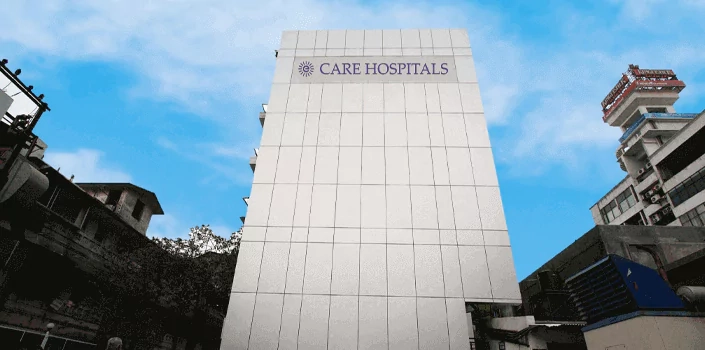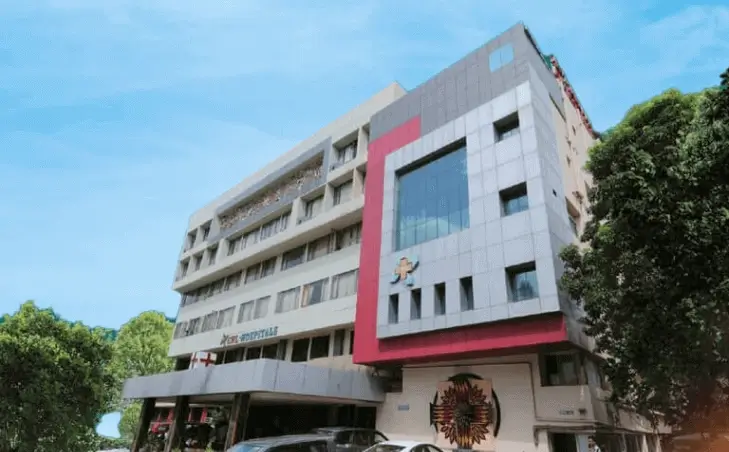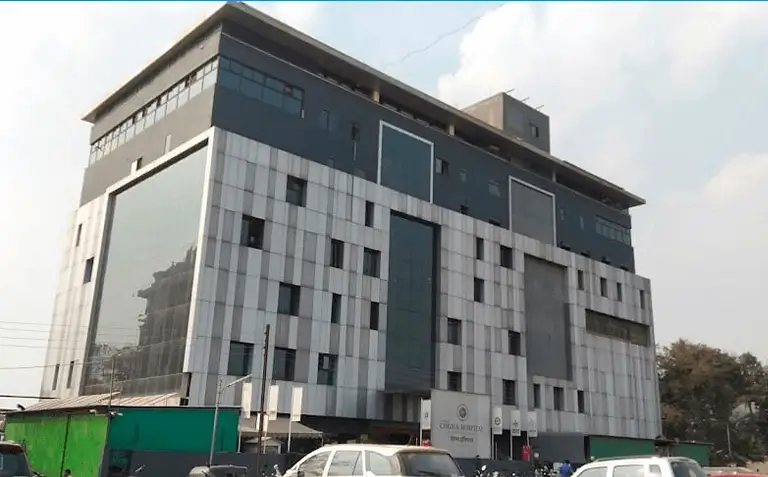-
Doctors
-
Specialities & Treatments
Centre of Excellence
Specialties
Treatments and Procedures
Hospitals & Directions HyderabadCARE Hospitals, Banjara Hills CARE Outpatient Centre, Banjara Hills CARE Hospitals, HITEC City CARE Hospitals, Nampally Gurunanak CARE Hospitals, Musheerabad CARE Hospitals Outpatient Centre, HITEC City CARE Hospitals, Malakpet
HyderabadCARE Hospitals, Banjara Hills CARE Outpatient Centre, Banjara Hills CARE Hospitals, HITEC City CARE Hospitals, Nampally Gurunanak CARE Hospitals, Musheerabad CARE Hospitals Outpatient Centre, HITEC City CARE Hospitals, Malakpet Raipur
Raipur
 Bhubaneswar
Bhubaneswar Visakhapatnam
Visakhapatnam
 Nagpur
Nagpur
 Indore
Indore
 Chh. Sambhajinagar
Chh. SambhajinagarClinics & Medical Centers
Book an AppointmentContact Us
Online Lab Reports
Book an Appointment
Consult Super-Specialist Doctors at CARE Hospitals

Best Hospitals for Miniperc Surgery in Hyderabad
- Advanced Technology
- Shorter Hospital Stay
- Pre & Post-Operative Care
- All Insurance Accepted

Chat With Our Experts
Get second opinion on Whatsapp
25 lakhs+
Happy Patients
Experienced and
skilled surgeons
17
Health Care Facilities
Top most Referral Centre
for Complex Surgeries
Advanced Miniperc Surgery
Miniperc surgery helps remove kidney stones with impressive success rates. This modern procedure has reshaped the scene of urological care and provides a stronger alternative to older techniques. Compared to Retrograde Intrarenal Surgery (RIRS), Miniperc takes much less time to complete.
Patients who want their kidney stones treated effectively should know that Miniperc needs less recovery time than standard Percutaneous Nephrolithotomy (PCNL). The procedure is quite safe. On top of that, it brings several benefits like less post-operative pain, quicker healing, and fewer complications.
Why CARE Group Hospitals is Your Top Choice for Miniperc Surgery in Hyderabad
CARE Hospitals achieves outstanding results by focusing on a precise method for invasive surgeries. The hospital's top-tier reputation comes from a mix of important factors, including:
- Expert Multidisciplinary Teams: CARE brings together urologists, radiologists, anaesthesiologists and nursing specialists who cooperate to create custom treatment plans for each patient
- Highly Skilled Surgical Teams: Our urologists have rich experience in complex kidney stone procedures and perform miniperc surgery with precision
- Advanced Facilities: CARE's operating theatres have advanced endoscopic and imaging technology built for kidney stone removal
- Holistic Patient Care: The hospital provides detailed pre-operative planning and post-operative care based on individual needs.
- Patient-centric Approach: CARE values both physical recovery and emotional well-being. They create a supportive environment throughout the treatment experience.
CARE Hospitals stands out because of its steadfast dedication to successful outcomes. Their track record shows consistent excellence in miniperc procedures with optimal results. This high success rate gives patients confidence that they are getting treatment from experts who value both technical skill and patient comfort.
Best Miniperc Surgery Doctors in India


Advanced Surgical Innovations at CARE Hospital
CARE Hospitals uses the latest technology for Miniperc surgery. They invest in modern equipment that improves surgical precision and speeds up recovery time.
Their surgical innovations include:
- High-definition Digital Nephroscope: This advanced tool gives surgeons better visibility during miniperc procedures. It helps them find and remove stones more accurately.
- Advanced Lithotripters – CARE uses ultrasonic and pneumatic lithotripters that break kidney stones while protecting surrounding tissue.
- Flexible Nephroscope Technology: This special equipment helps surgeons reach stones that might need more invasive approaches otherwise.
- Real-time Imaging Guidance – Modern fluoroscopy systems show continuous views throughout the procedure. This makes the surgery safer and more precise.
- Advanced Laser Technology: Surgeons use modern laser systems to break down stones precisely. This works well for complex stone types
Conditions Requiring Miniperc Surgery
CARE Hospitals uses Miniperc surgery for various kidney stone conditions that need more than basic treatment. Knowing which cases benefit most from this procedure helps patients choose the right treatment option.
Doctors recommend Miniperc surgery to treat:
- Large Kidney Stones – It is effective on stones bigger than 2 cm.
- Complex or Staghorn Calculi – These branch-shaped stones fill the kidney's collection system and are well-suited to Miniperc treatment.
- Multiple Kidney Stones – Miniperc removes several stones in one procedure.
- Stone Resistant to Other Treatments – Helps patients who haven't improved with simpler treatments like ESWL.
- Lower Pole Kidney Stones – These stones are hard to treat with other methods because of their location.
The procedure also helps patients with unusual kidney anatomy that makes stone removal difficult through other methods. The hospital's experience with tough cases makes them fluent in handling complex stone problems that need expert care.
Pre-surgery Preparation
Your path to successful miniperc surgery starts with detailed planning. This includes:
Your urologist will review your condition through various tests and discussions.
The doctor starts by arranging imaging tests to map out the kidney stones. These scans give 3D pictures of the stones in your kidney and point out nearby areas that need to be kept safe. You will have to undergo these tests.
- CT scans or ultrasounds to locate stones and measure how big they are
- Kidney function studies will check how well your kidneys are working
- A full blood count will look at your overall health
- Clotting profile to check bleeding risks
- Mid-stream urine test to ensure sterile urine before surgery
You will need to fast for about 6 hours before miniperc surgery. You can have small sips of water if needed for your usual medicines.
During your consultation, your medical team will review all your medications. They will let you know which ones to stop or continue, but blood-thinning medicines have to be stopped 7 to 10 days ahead of surgery.
This preparation lowers risks and boosts the likelihood of removing the stones.
Miniperc Surgical Procedure
The surgery happens under general anaesthesia and takes about 2-3 hours. The team will place you on your stomach (prone position) during the procedure. Some cases might need you to lie on your back or in modified positions based on your needs.
Here's how the surgery works:
- A cystoscopy puts a ureteric catheter into your kidney for drainage and access
- The kidney system fills gently with saline through the catheter to help with calyceal puncture
- The surgeon makes a small cut (about 1 cm) in your back
- A hollow needle enters your kidney guided by x-ray imaging or ultrasound
- The tract expands to fit a special nephroscope with light and a camera
- Various tools break down kidney stones using lasers, ultrasonic probes or pneumatic devices
- These broken pieces come out through the nephroscope or flush out with irrigation fluid
Surgeons watch irrigation pressure closely to avoid problems. The small instruments used in Miniperc (14-20Fr access sheath versus 24-30Fr in standard PCNL) cause less damage while working just as well.
At the end, you might need a drainage catheter (nephrostomy tube) to drain urine from your kidney. Some patients also get a ureteral stent to keep urine flowing properly.
Complications of Miniperc Surgery
Miniperc Surgery is generally a safe surgery. Still, some of the complications you may face are:
- Minor bleeding
- Urinary tract or kidney infection
- Injury to surrounding organs like the bowel or lungs
- Urinary leakage (temporary complications)
- Some fragments of stone remain
- Mild pain
Benefits of Miniperc Surgery
- Less post-operative pain and complications than traditional stone removal surgery
- Minimal invasive procedure causing less tissue damage and quicker recovery
- Effectively removes small to moderate-sized renal stones
- Less scarring
Insurance Assistance for Miniperc Surgery
Most health insurance plans cover Miniperc surgery that doctors deem medically necessary. You should get coverage details and pre-authorisation before moving forward with surgery.
Second Opinion for Miniperc Surgery
Getting a second opinion about your condition and gaining an understanding of your options and the necessity of surgery is good. It not only eases your mind but also gives you confidence in your treatment choice. So if you are not sure about your diagnosis or have doubts about your treatment plan, get a second opinion.
Conclusion
Miniperc surgery gives kidney stone sufferers a remarkable way to live pain-free without major disruptions to their daily routine.
CARE Hospitals’ expert teams combine surgical expertise with advanced technology to deliver outstanding results. The hospital's commitment to tailored care shines through their detailed pre-operative planning and post-surgery support.
This minimally invasive approach brings huge benefits to patients. They spend less time in the hospital, face lower bleeding risks, and bounce back to their routine faster. The incision measures just 1cm, which leads to less trauma and quicker healing.
Miniperc Surgery Hospitals in India
-
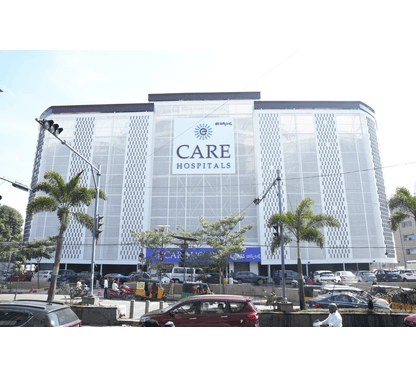
CARE Hospitals, Banjara Hills, Hyderabad
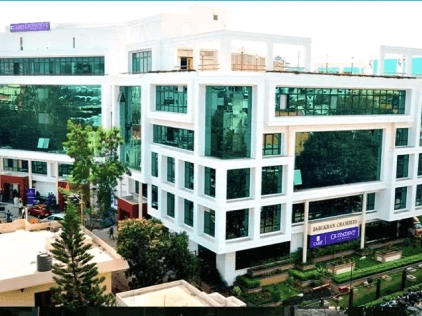
CARE Hospitals Outpatient Centre, Banjara Hills, Hyderabad
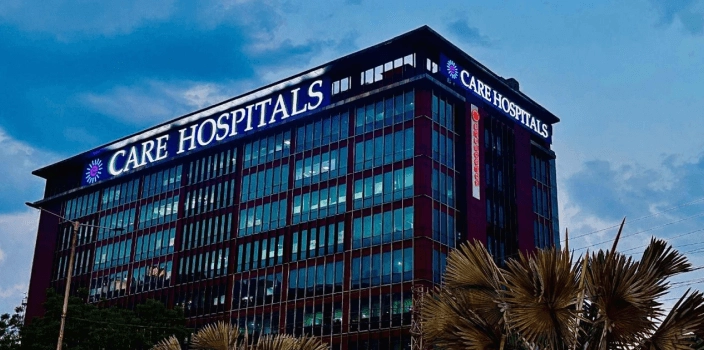
CARE Hospitals, HITEC City, Hyderabad
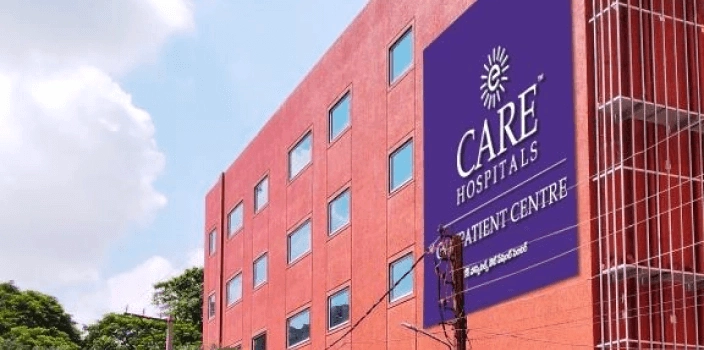
CARE Hospitals Outpatient Centre, HITEC City, Hyderabad
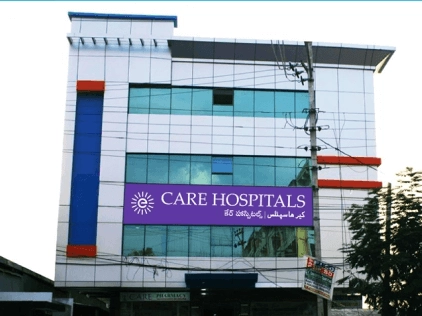
Gurunanak CARE Hospitals, Musheerabad, Hyderabad
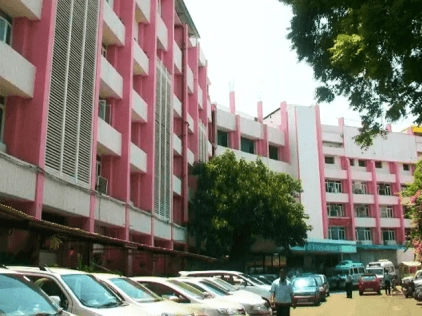
CARE Hospitals, Nampally, Hyderabad
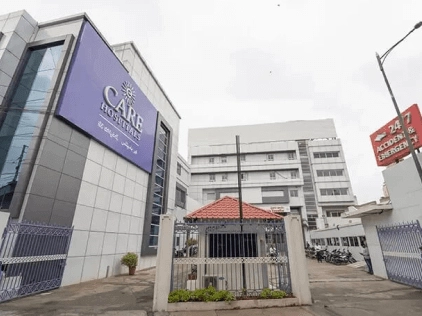
CARE Hospitals, Malakpet, Hyderabad
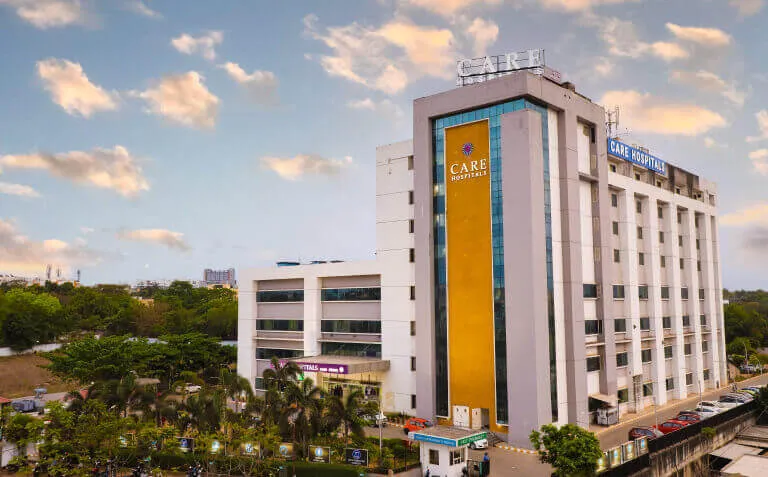
CARE Hospitals, Bhubaneswar
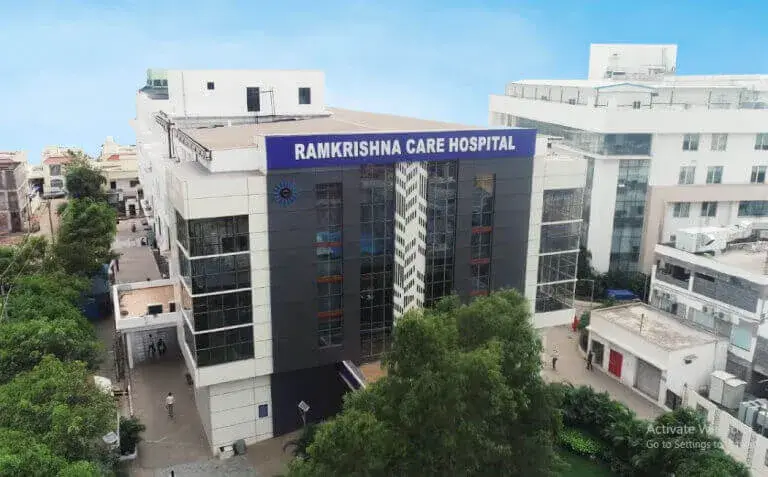
Ramkrishna CARE Hospitals, Raipur
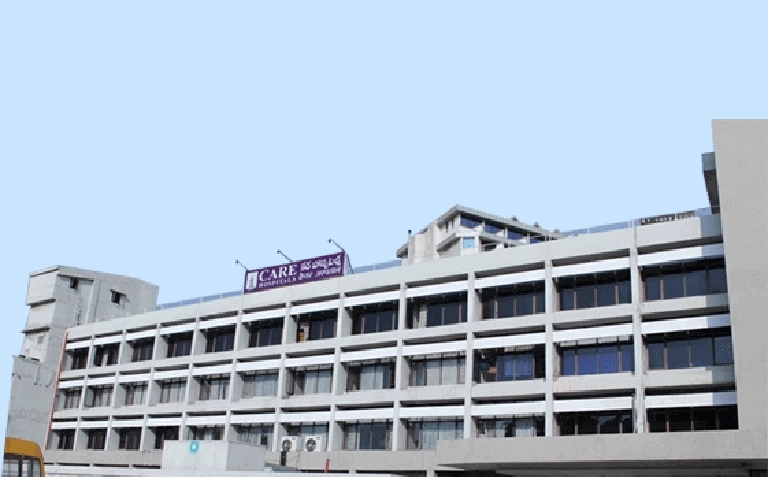
CARE Hospitals, Ramnagar, Visakhapatnam
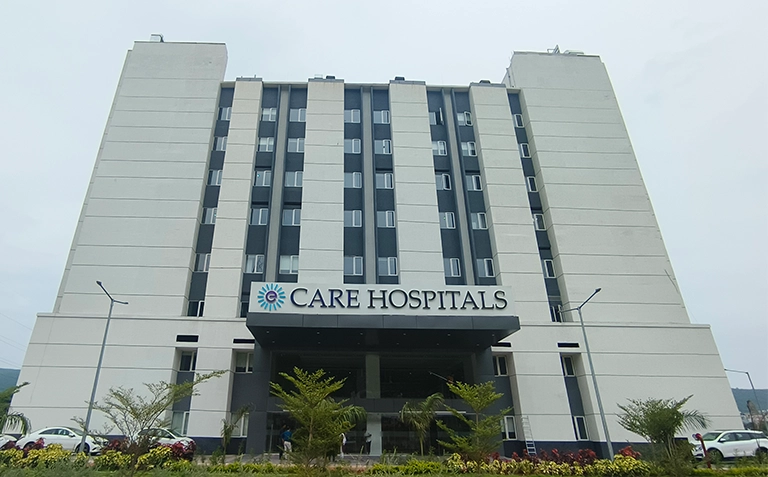
CARE Hospitals, Health City, Arilova
Related Surgeries
- Best Hospital for Bladder Suspension Surgery in Hyderabad
- Best Hospitals for Vasectomy in Hyderabad
- Best Hospital for Circumcision Surgery in Hyderabad
- Best Hospital for DJ Stent Removal Surgery in Hyderabad
- Best Hospital for Laser Prostatectomy Surgery in Hyderabad
- Best Hospital for PCNL Surgery in Hyderabad
- Best Hospital for Penile Implant Surgery in Hyderabad
- Best Hospital for RIRS Surgery in Hyderabad
- Best Hospital for Turp Surgery in Hyderabad
- Best Hospital for Ureteroscopic lithotripsy Surgery in Hyderabad
- Best Hospital For Epididymectomy Surgery in Hyderabad
- Best Hospital for TURBT Surgery in Hyderabad
- Best Hospital for Varicocelectomy Surgery in Hyderabad
- Best Hospitals for Miniperc Surgery in Hyderabad
- Best Hospital for Nephrectomy Surgery in Hyderabad
- Best Frenuloplasty Surgery in Hyderabad
- Bladder Neck Incision Surgery in Hyderabad
- Best Hospital for Prostatectomy Surgery in Hyderabad
- Best Hospital for Urethral Stent Placement Surgery in Hyderabad
- Best Hospital for Urethrotomy Surgery in Hyderabad
- Best Hospital for Urethroplasty Surgery in Hyderabad
- Best Hospital for Endopyelotomy Surgery in Hyderabad
- Best Hospital for Bladder Sling Surgery in Hyderabad
Frequently Asked Questions
Miniperc surgery, also called mini-Percutaneous Nephrolithotomy (mini-PCNL), is a minimally invasive technique that doctors use to remove kidney stones. The procedure uses smaller instruments than traditional PCNL, with access sheaths between 14-20F.
Doctors suggest Miniperc surgery based on your stone characteristics and previous treatment results. The procedure works best if you have:
- Kidney stones bigger than 1-2 cm across
- Stones that didn't break up with shock wave lithotripsy (SWL) or other less invasive treatments
- Lower pole kidney stones that other methods can't treat well
- Multiple kidney stones that need quick removal in one procedure
- Complex or staghorn calculi
You might be right for miniperc surgery if you have:
- Medium-sized kidney stones (10-25 mm)
- Stones in the renal pelvis or lower calyx
- Previous treatments like shock wave lithotripsy or ureteroscopy that didn't work
- A large total stone burden (more than 6 cm²)
- Good overall health to handle anaesthesia
Experienced urologists perform Miniperc surgery with great safety results. Studies show it's a safe and effective way to treat renal calculi.
Recovery from Miniperc happens gradually, and most patients return to their normal activities within a month. You will likely stay in the hospital for 2-4 days, based on your healing progress.
Drinking plenty of water will help flush your system during recovery. Call your doctor right away if you notice fever, chills, or heavy bleeding - these could be signs of complications that need immediate attention.
Miniperc surgery leaves minimal lasting effects, and patients typically recover completely. The procedure causes less trauma than traditional methods, which leads to faster healing.
General anaesthesia serves as the standard choice for Miniperc surgery. This means you will be completely unconscious and won't feel any pain during the procedure.
Still Have a Question?
















